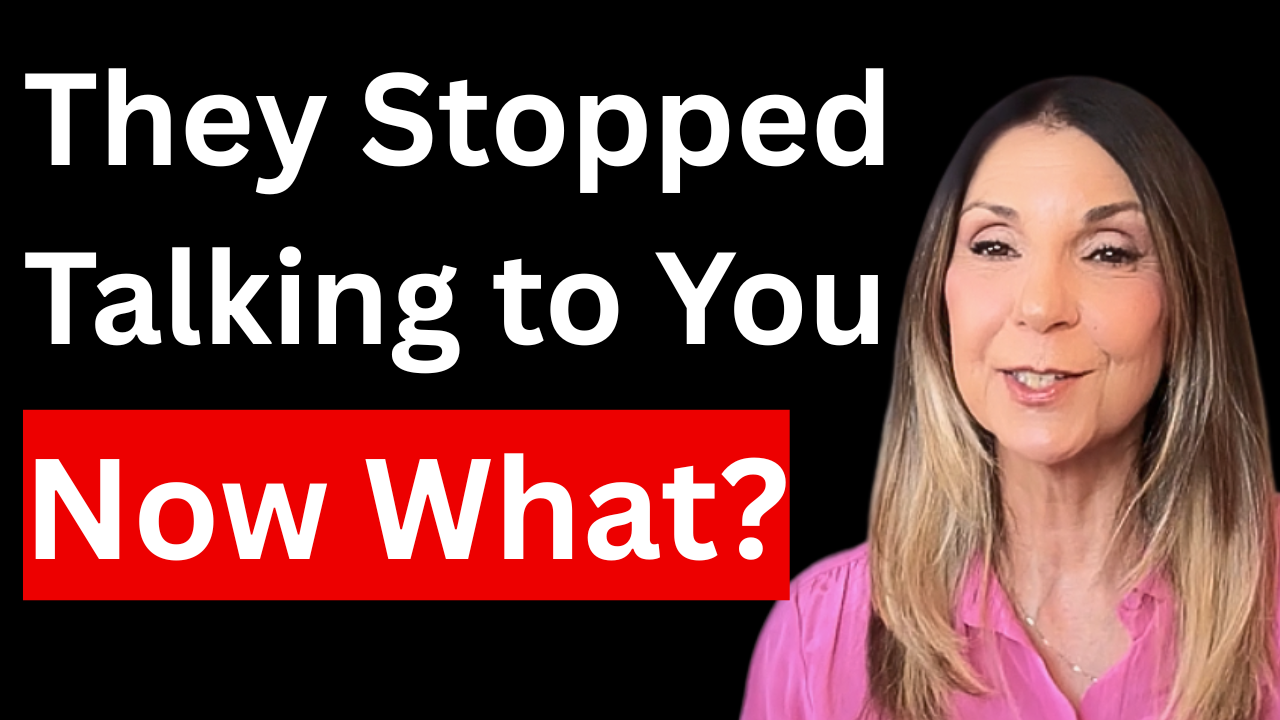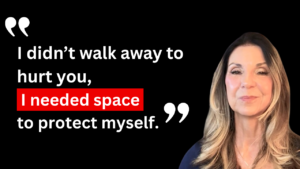One surprising reason adult children go no-contact isn’t abuse or neglect; it’s value dissimilarity. Research shows that significant differences in core beliefs, like religion, politics, or lifestyle, can drive a wedge between parents and adult children, even when there’s no history of overt harm.
These differences challenge identity, autonomy, and emotional safety. And when conversations around them become tense or dismissive, the relationship can slowly erode.
Most people don’t talk about this, but it matters. Respecting a child’s values can be the difference between connection and distance, even when you don’t share them.
Estrangement between parents and adult children is a painful and complex experience. When an adult child goes no contact, it can feel like an emotional blow that leaves parents confused, grieving, and questioning what went wrong. It’s one of the most heartbreaking situations a parent can face, and it’s not easy to navigate.
In this blog, we’ll explore why adult children go no contact, the emotional toll on parents, and how parents can begin the process of healing. We’ll also discuss why defensiveness and anger can worsen the situation, how empathy plays a key role in healing, and why there is no “one-size-fits-all” explanation for estrangement.
Why Does Estrangement Happen?
The reasons for estrangement are deeply personal and often involve layers of unresolved emotional wounds. Adult children may decide to go no contact due to various reasons:
Emotional Pain and Unresolved Issues: Many estranged children carry emotional scars from their childhood, whether it’s neglect, emotional manipulation, or feeling misunderstood. These wounds don’t just disappear when they turn 18. For some adult children, cutting contact is their way of protecting themselves from further emotional harm.
Conflicting Expectations: Sometimes, adult children feel that their parents have unrealistic expectations about their lives, independence, and boundaries. Parents may unintentionally push too hard for things like frequent contact or family obligations that the adult child feels are invasive.
Personal Growth and Self-Discovery: For some, estrangement is part of a larger journey of personal growth. They may need space from their parents to explore their identity, relationships, or healing. This doesn’t necessarily mean they don’t love their parents; it simply means they need distance to work through their emotional terrain.
Unmet Needs: Parents may feel they have done everything possible to provide for their child. But sometimes, the child’s emotional needs weren’t met in the way they needed. If the child feels their emotional needs were neglected, this could lead to resentment and eventual estrangement.
The Emotional Toll on Parents
When parents face the reality of estrangement, the emotional toll is profound. The grief can feel overwhelming, and parents may experience:
- Anger: Parents often feel angry that their adult child has chosen to go no-contact, especially if they feel that their intentions were pure. It can be hard to accept that the child doesn’t appreciate everything the parent has done.
- Sadness and Loneliness: A parent’s absence from their child’s life can leave them feeling like something important has been taken away. Special moments, holidays, and family milestones lose meaning without their child.
- Guilt: Many parents struggle with guilt, wondering what they could have done differently. They may second-guess their actions, wondering if something they said or did led to the estrangement.
- Confusion: Sometimes, estrangement comes without warning or explanation. This lack of closure can leave parents in a state of confusion, questioning their role in the breakdown of the relationship.
The Problem with Defensiveness and Anger
It’s natural to feel defensive when someone you love pulls away, especially when you don’t understand why. But here’s the thing: reacting defensively often makes things worse. When parents get angry or defensive, it sends the message that they’re not willing to listen or take responsibility for their part in the estrangement.
Defensiveness can fuel the estrangement. It can make adult children feel invalidated, ignored, or misunderstood. Instead of feeling like their parents are genuinely trying to understand their pain, they may feel like their parents are more concerned with defending their actions than repairing the relationship.
Many grieving parents find solace in connecting with others experiencing estrangement. However, it’s important to be mindful of the advice you receive in these circles. Sometimes, the pain and frustration shared in these groups can lead to unhealthy patterns of blaming the child for being “ungrateful” or “selfish.” This kind of thinking can deepen the divide and prevent any possibility of healing.
Why Empathy and Accountability Matter
So, what’s the key to repairing estranged relationships? It begins with empathy. Empathy doesn’t mean agreeing with everything your child says or does but acknowledging their pain and understanding that their feelings are valid.
The first step in healing is to stop blaming your child or getting defensive. It’s not easy, especially when you feel like your actions were misunderstood, but acknowledging their pain can create an opening for healing. By offering empathy, you show your child that you are willing to listen and understand, even if you don’t agree with everything they feel.
Accountability is also a crucial part of this process. Parents may need to reflect on their actions, recognize any mistakes, and be willing to apologize. This doesn’t mean accepting blame for everything, but it does mean being open to healing and responsible for your role in the relationship.
There’s No One-Size-Fits-All Solution
It’s also important to understand that every estranged relationship is unique. Some situations may involve more “unreasonable” behaviors from both the parent and the child. Perhaps a parent was overly controlling, or a child has unrealistic expectations of their parents. Each situation is different, and no single formula for repairing these relationships exists.
The key is to approach the situation with an open heart, a willingness to listen, and a readiness to take responsibility for your part in the estrangement.
Moving Forward
Healing from estrangement is not easy or quick. It takes time, patience, and a lot of emotional work. But it’s possible to begin the repair journey with empathy, accountability, and a commitment to understanding the emotional needs of both yourself and your child.
If you’re struggling with estrangement, know that you’re not alone. If you’re ready to take the first steps toward healing, there is hope for rebuilding a relationship, even if that relationship looks different than you initially imagined.









